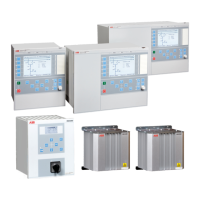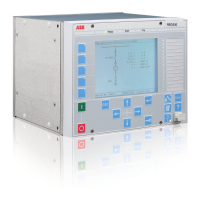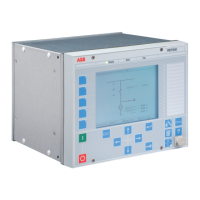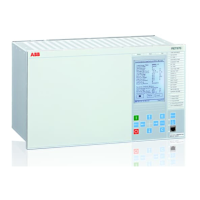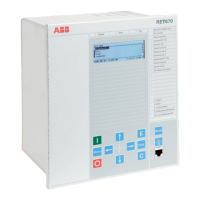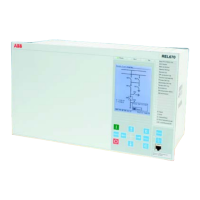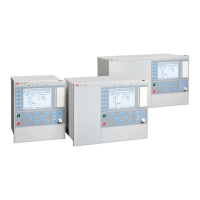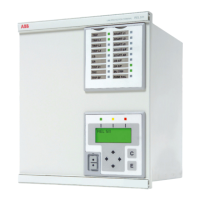Weak-end infeed logic
The WEI function sends back (echoes) the received carrier signal under the condition
that no fault has been detected at the weak end by different fault detection elements
(distance protection in forward and reverse direction).
BLOCK
CRLLn
WEIBLK1
ECHOLn
ECHOLn - cont.
en07000085_ansi.vsd
VTSZ
OR
AND
AND
WEIBLK2
200ms
0
200ms
0
0-tWEI
0
50ms
0
0
200ms
ANSI07000085 V1 EN
Figure 410: Weak-end infeed logic
The WEI function returns the received carrier signal, see figure 410, when:
• The input CRLx is active. This input is usually connected to the CRLx output on
the scheme communication logic for distance or Overcurrent protection (ZCPSCH ,
85).
• The WEI function is not blocked by the active signal connected to the WEIBLKLx
input or to the VTSZ input. The later is usually configured to the STGEN output
of the fuse-failure function.
• No active signal has been present for at least 200 ms on the WEIBLK2 input. An
OR combination of all fault detection functions (not undervoltage) as present
within the IED is usually used for this purpose.
When an echo function is used in both IEDs (should generally be avoided), a spurious
signal can be looped round by the echo logics. To avoid a continuous lock-up of the
system, the duration of the echoed signal is limited to 200 ms. An undervoltage criteria
is used as an additional tripping criteria, when the tripping of the local breaker is
selected, setting WEI = Echo &Trip, together with the WEI function and ECHO signal
has been issued by the echo logic, see figure
411.
Section 13 1MRK505222-UUS C
Scheme communication
824
Technical reference manual

